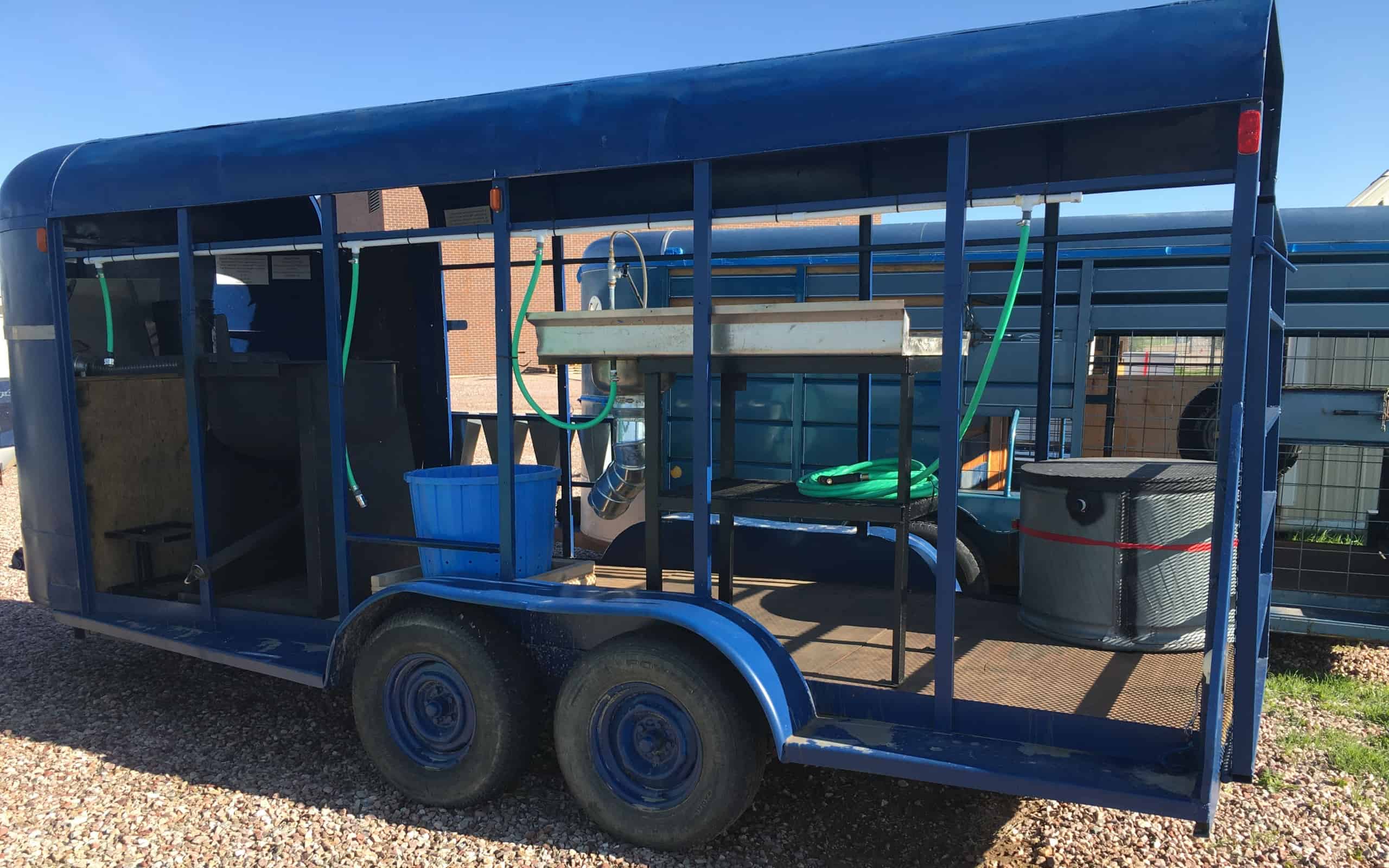Jay Clapper built his 28-year teaching career on a simple philosophy: “If I can’t get the kid to the farm, I’ll get the farm to the kid.”
In rural Colorado, where he began teaching in 1993, and now in Wyoming, where he’s led the Southeast FFA Chapter for 11 years, the majority of his members have farming experience and access. However, he’s always had a small percentage of FFA members eager to participate in a supervised agricultural experience (SAE) who lacked the resources.
Clapper’s solution? Put farms on wheels.
It started with a portable pig hut. Clapper built it with everything a student needs to care for a bred sow and raise a litter of piglets. After weaning, Clapper cares for the sow, and the students are responsible for raising the piglets for auction. Clapper now has two pig huts, as well as a beehive trailer with five beehives, a poultry processing trailer (pictured), a portable corn planter, portable rotary tiller and two barns built on 16-foot trailers.
The program continues to grow. Clapper’s innovative, easy-access approach recently earned him a $25,000 Cutting Edge Grant from the Wyoming Department of Education. He plans to add more portable barns, a sweet potato program, a lamb program and a worm farm. Additionally, Clapper gathered sponsors to provide animals for the program. “Instead of nickel-and-diming, I’ll be able to do it right,” Clapper says. “I just want to get the excitement going and make everything official.
“I really think this is the future of agricultural education,” he adds. “A lot of chapters have farms, but it’s limited to the kids who are close, and it can be hard on the teacher to maintain over breaks. This puts the responsibility on the students.”
Responsibility is the real teacher, Clapper says. “If a piglet dies, [a student] learns to think, ‘OK, I could’ve done this instead,’ or they have to learn how to save their money to make sure their animals have enough to eat.
“One of my visions of my entire career has been to make the most well-rounded students I can,” and these student-led projects do that, Clapper says. “These skills translate — [students] develop habits that help them approach real-world problems. They’re simple skills, but skills a lot of people don’t have.
“If my students become ranchers, that’s great,” he adds. “But it’s more than that.”












